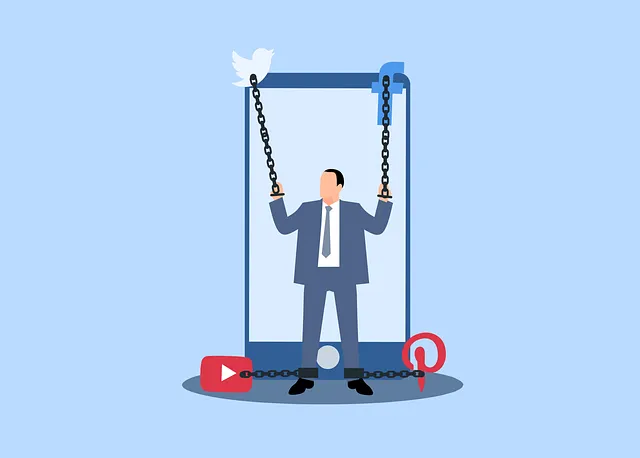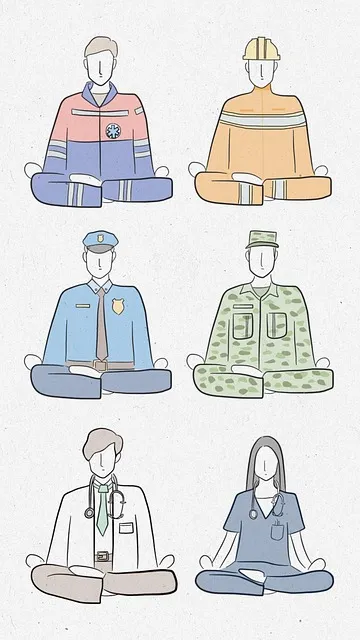The stigma surrounding mental health issues significantly hinders individuals from seeking necessary support, like that offered by the Wheat Ridge Kaiser Permanente mental health appointment number. This internalized shame and fear of judgment lead to discrimination and social exclusion, exacerbating anxiety, depression, and suicide rates. To combat this, a multi-faceted approach is required, including public education, fostering empathy through open conversations, implementing burnout prevention strategies for healthcare providers, and integrating these efforts into the healthcare system. Wheat Ridge Kaiser Permanente stands out as a leader in mental health care, prioritizing patient well-being with comprehensive, tailored services, early intervention, and burnout prevention, creating a supportive environment that encourages positive thinking and resilience. Through community education, outreach programs, and media representation, stigma can be reduced, empowering individuals to seek help without judgment. Collaborative action across sectors, including workshops, peer support, and awareness campaigns, incorporates diverse voices and evidence-based practices to create lasting change in mental health access.
Mental illness stigma reduction is a critical component of improving overall well-being. This article explores various initiatives aimed at dismantling the barriers that prevent individuals from seeking help, focusing on strategies employed by organizations like Kaiser Permanente Wheat Ridge, community education efforts, media portrayal, and innovative approaches to fostering acceptance. By understanding the profound impact of stigma, we can empower ourselves to create a more inclusive society where everyone has access to mental health support, symbolized by the safe space at Wheat Ridge Kaiser Permanente, accessible through a simple mental health appointment number.
- Understanding Stigma and its Impact on Mental Health
- Kaiser Permanente Wheat Ridge: A Safe Space for Treatment
- Educating Communities to Break Down Barriers
- The Role of Media in Shaping Public Perception
- Strategies for Advancing Mental Illness Stigma Reduction
Understanding Stigma and its Impact on Mental Health

Stigma surrounding mental health issues can have a profound impact on individuals’ willingness to seek help and support. It often manifests as negative attitudes, beliefs, and stereotypes about people with mental disorders, leading to discrimination and social exclusion. This internalized shame and fear of judgment can deter people from accessing essential services like those offered at Wheat Ridge Kaiser Permanente mental health appointment number, hindering their path to recovery. The consequences are severe; unaddressed stigma contributes to increased anxiety, depression, and even suicide rates.
Reducing stigma requires a multifaceted approach. Educating the public about mental health conditions, promoting empathy, and fostering open conversations can help dispel myths. Additionally, encouraging healthcare providers to adopt burnout prevention strategies, such as those developed in Mental Wellness Coaching Programs, can create supportive environments where individuals feel safe to disclose their struggles without fear of judgment. By integrating these efforts into the healthcare system, communities can move towards a more compassionate and inclusive understanding of mental wellness, ensuring that everyone receives the Anxiety Relief they need.
Kaiser Permanente Wheat Ridge: A Safe Space for Treatment

Wheat Ridge Kaiser Permanente stands out as a beacon of hope and recovery for those navigating mental health struggles. This healthcare facility has dedicated itself to creating a safe and supportive environment, fostering a sense of belonging among individuals seeking treatment. By prioritizing patient well-being, Wheat Ridge Kaiser Permanente goes beyond traditional medical care, offering comprehensive services tailored to address the unique needs of each individual.
The center’s approach emphasizes the importance of early intervention and burnout prevention, recognizing that mental health awareness is crucial for overall well-being. Through its welcoming atmosphere and skilled professionals, it encourages individuals to prioritize their mental health, fostering positive thinking and resilience. With a focus on accessibility and inclusivity, Wheat Ridge Kaiser Permanente ensures that everyone who needs support can find it, breaking down barriers and promoting a culture of care. For those seeking a mental health appointment, the Wheat Ridge Kaiser Permanente team is ready to provide guidance and assistance, making it easier for folks to take that first step towards recovery.
Educating Communities to Break Down Barriers

Educating communities is a powerful tool in the ongoing fight to reduce mental illness stigma. By fostering open dialogues and sharing accurate information, we can break down barriers that prevent individuals from seeking help. Community outreach programs play a pivotal role in this process, aiming to raise awareness about various mental health conditions, dispel myths, and offer support through educational workshops, seminars, or local events. These initiatives empower citizens to recognize the signs of struggle and encourage them to reach out without judgment.
For instance, organizations like Wheat Ridge Kaiser Permanente have implemented community outreach programs that connect people with resources for mental health appointments, emphasizing the importance of early intervention and ongoing care. Through these efforts, communities become more equipped to support individuals navigating emotional healing processes, fostering a culture of empathy and understanding where everyone feels comfortable seeking assistance.
The Role of Media in Shaping Public Perception

The media plays a pivotal role in shaping public perception about mental illness, often influencing how individuals from all walks of life view and understand these conditions. With powerful storytelling capabilities, media platforms can either perpetuate harmful stereotypes or promote understanding and empathy. For instance, news coverage that focuses on sensationalist stories or uses derogatory language can contribute to the stigmatization of mental health issues. On the other hand, media outlets that prioritize accurate representation and personal narratives from individuals living with mental illness can significantly shift public opinion. By showcasing recovery stories and emphasizing the importance of seeking help, the media can encourage others to take that first step towards healing, as facilitated by services like Wheat Ridge Kaiser Permanente mental health appointment number.
Effective communication strategies are essential in this context. Media professionals must employ sensitive language and factual information when discussing mental health topics. Additionally, integrating diverse voices into the conversation, particularly those from underrepresented communities, can foster cultural sensitivity in mental healthcare practice. This inclusivity ensures that various experiences and perspectives are acknowledged, promoting a more nuanced understanding of mental illness among the general population.
Strategies for Advancing Mental Illness Stigma Reduction

Reducing stigma associated with mental illness is a multifaceted endeavor that requires collaborative efforts from various sectors. One effective strategy is to promote open conversations about mental health, encouraging individuals to share their experiences and dispel myths. Community outreach programs, such as those organized by Kaiser Permanente in Wheat Ridge, can play a pivotal role. These initiatives often involve educational workshops, peer support groups, and awareness campaigns that target both general audiences and specific demographics.
Integrating evidence-based practices like Mind Over Matter principles into mental health education programs design has proven beneficial. Stress management workshops offered by organizations like Kaiser Permanente equip individuals with coping mechanisms, fostering a sense of agency. Additionally, involving diverse voices in these discussions ensures a more inclusive approach, addressing unique challenges faced by different communities. Regularly evaluating and adapting these strategies based on community feedback and research findings is essential to create sustainable change, ultimately reducing stigma and improving access to mental health services, including those offered through Kaiser Permanente’s Wheat Ridge mental health appointment number.
Mental illness stigma reduction is a multifaceted approach that requires collective efforts from healthcare providers, educators, and media. As shown by Wheat Ridge Kaiser Permanente’s successful model of providing safe spaces for treatment, accessible services like those offered with an easy-to-remember mental health appointment number can significantly impact care. By educating communities and reshaping public perception through thoughtful media representation, we can foster a more inclusive society that supports individuals facing mental health challenges. These strategies, when implemented comprehensively, have the potential to minimize stigma and enhance overall well-being.



